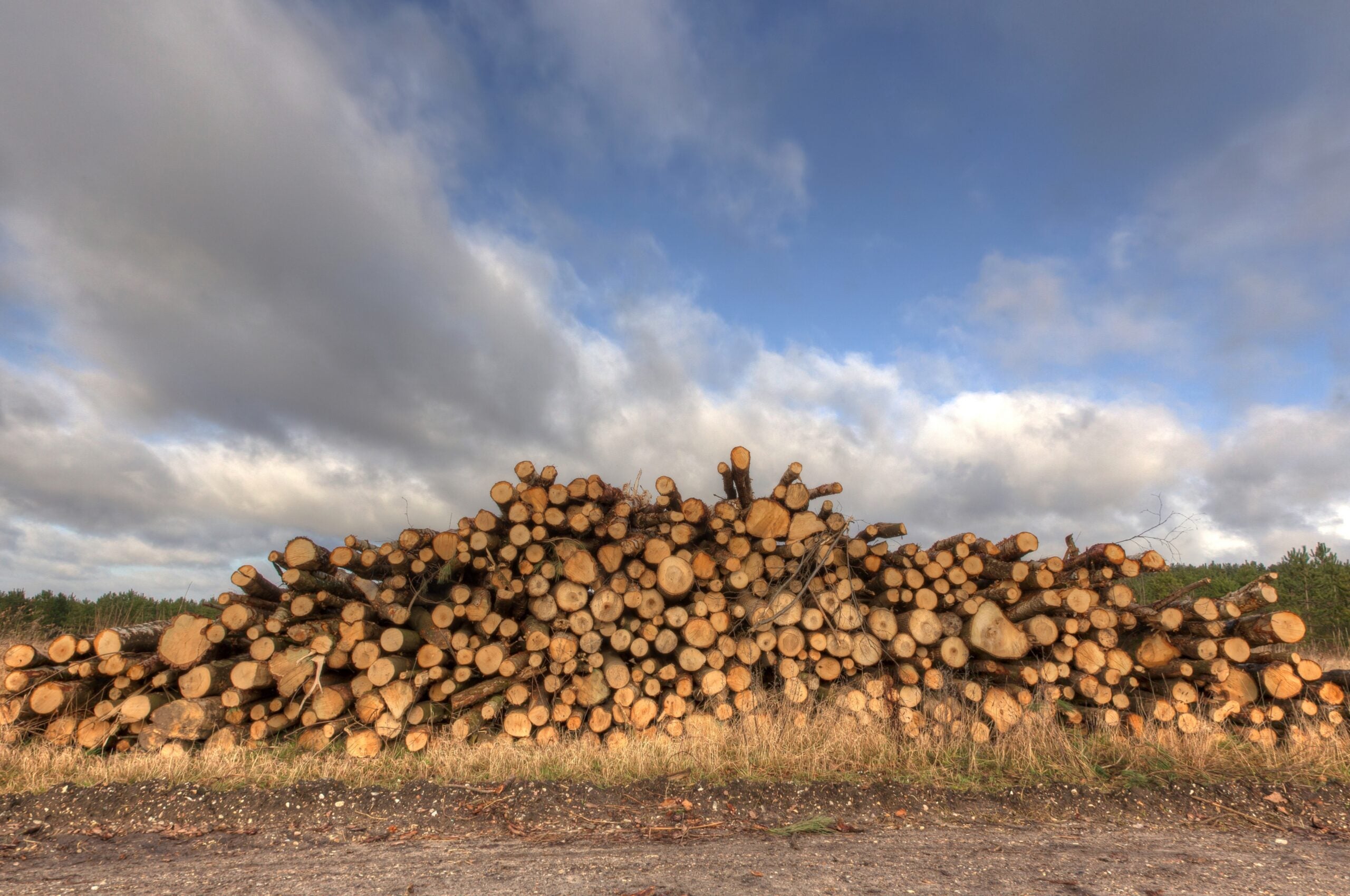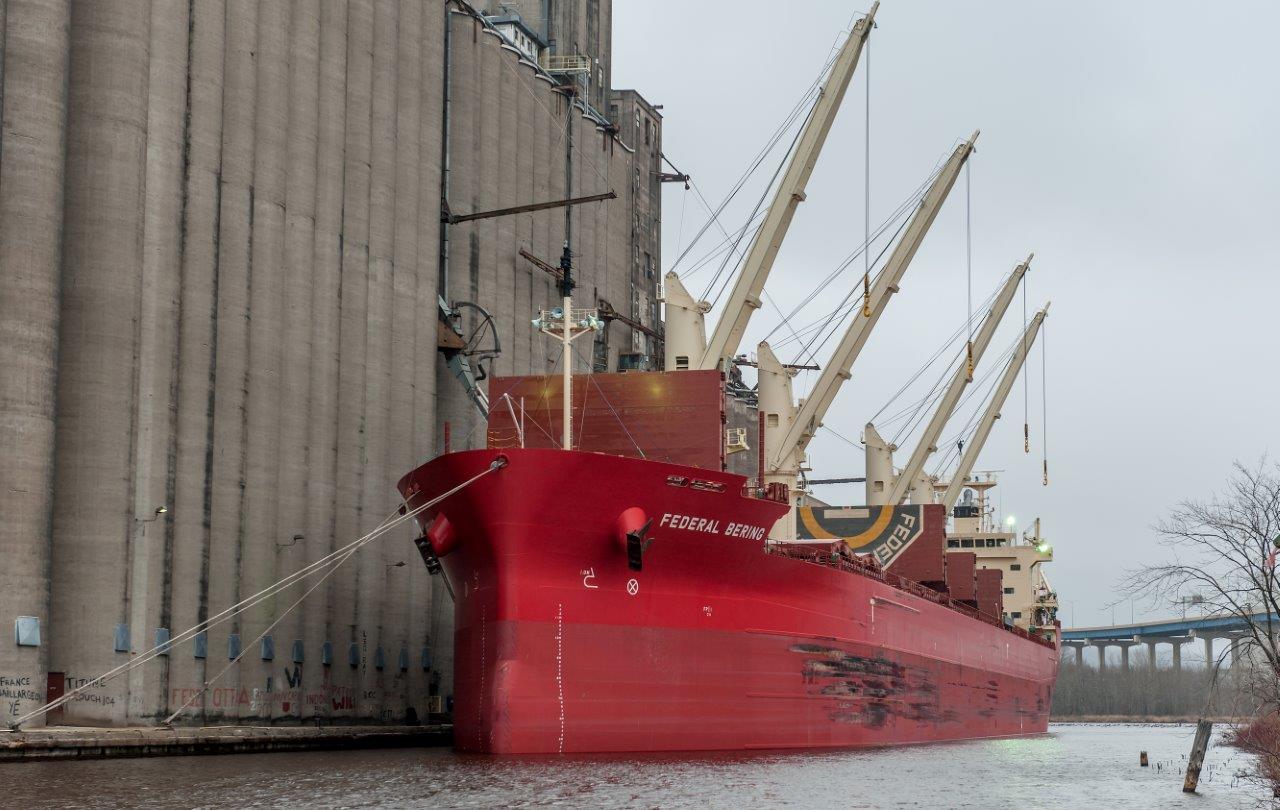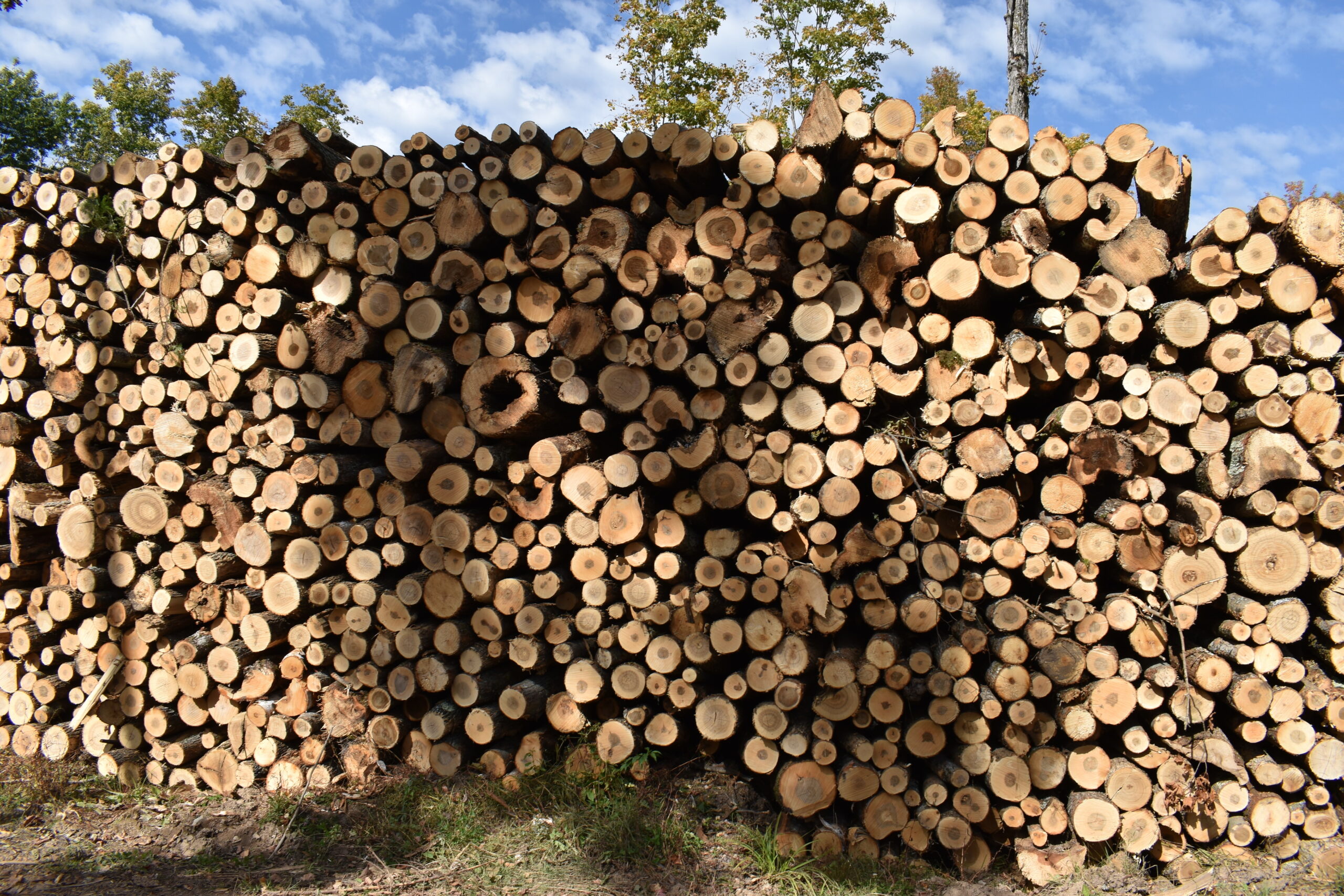Some northern Wisconsin loggers are putting off timber harvests as the prices for timber products they deliver have fallen over the past eight months.
Great Lakes Timber Professionals Association Executive Director Henry Schienebeck said some loggers are holding off on harvesting wood they bought under contract. He said an oversupply of raw material on the market is leading some to consider their options.
“The guys are still able to produce the wood. Now, they’re trying to adjust their production levels to what the mill requirements are right now,” Schienebeck said.
Stay informed on the latest news
Sign up for WPR’s email newsletter.
Larger mills don’t have as much need for wood since they have full inventories, said Forrest Gibeault, analysis and investment operations director with the forestry consulting firm Steigerwaldt Land Services out of Tomahawk. He said several factors are driving that.
“One of them being that the mills are probably not working at full capacity,” Gibeault said. “Their product demand may not be where they would like to see it.”
He added loggers likely expanded their workforce last year to produce more wood for mills that had lower inventories at the time. Now, Gibeault said larger mills can afford to pay loggers less for the wood they deliver because of adequate supplies.
While some loggers are delaying harvest, that’s increasing uncertainty for northern Wisconsin counties that aren’t paid for timber sale contracts until the wood is harvested.
Jon Harris, director of forestry and natural resources for Douglas County, said they’re seeing a backlog of active contracts. The county’s number of contracts that haven’t yet been harvested has increased by about one-third in the last decade.
“I believe we have just upwards of $13 million of stumpage on our books right now. We haven’t realized any of that obviously until it gets harvested,” said Harris. “The longer you’re carrying that inventory, the more you’re at risk for losing some of that inventory.”
Harris said a wildfire, windstorm or market collapse could mean a revenue loss for the county. He said eight contractors are seeking final, fifth-year extensions on about 20 timber sale contracts this year. The county typically sells contracts on a two-year term to harvest, offering up to two extensions. Anything beyond that, loggers may see their bidding privileges suspended.
“The winter harvesting season the last couple years has been poor. Also, most of these contracts that were purchased three, four years ago were purchased at a fraction of the cost of what timber is being sold for today,” said Harris. “The longer they hold these, the greater the profit return they’re going to have on them.”
In Ashland County, the number of active timber sale contracts has gone up about 25 percent from what they’ve seen in the past, Forest Administrator Chris Hoffman said.
“A lot of guys are cutting and decking wood and just waiting until they can get contract to deliver that wood under, and some guys are just not working,” Hoffman said.
He said part of the reason mills aren’t needing as much wood is that loggers didn’t see a slowdown in timber production during the wet summer months.
With mills experiencing higher inventories, Schienebeck said that could mean a shorter winter logging season.
“Maybe by mid-February the mills will be filled up and they’re not going to take much more,” he said, noting loggers typically produce wood until the end of February through mid-March.
But, some sawmill owners say they need the surplus of wood to help drive prices down on the material they buy from loggers.
“Since my lumber prices are lowering, I need to buy cheaper material to produce my material cheaper,” said Kyle Wolf, co-owner of Wolf Brothers Sawmill in Stetsonville. “If I buy expensive logs and then sell it for cheaper, I’m going backwards.”
As a smaller outfit, Tyler Wolf, owner of Goodrich Sawmill in Medford, said it’s difficult to offer the kind of prices as nearby competitor mills. He said log prices are some of the highest he’s seen in the last 15 years.
“If I have to pay more money, then I have to get more money on the other end also so I can continue to make my payments and pay the wages and such,” he said.
Wolf hopes to see prices increase on the finished end. Gibeault said pricing has been changing more rapidly within the industry.
“Those price increases and price decreases are happening more frequently. If you see price plateaus or a period when prices are more stable, those periods are becoming shorter,” he said.
But, Gibeault said there’s no significant shift in market trends to cause concern for any part of the industry.
Gibeault provided the following tables illustrating trends in stumpage prices:
Courtesy of Steigerwaldt Land Services
Courtesy of Steigerwaldt Land Services
Wisconsin Public Radio, © Copyright 2025, Board of Regents of the University of Wisconsin System and Wisconsin Educational Communications Board.





